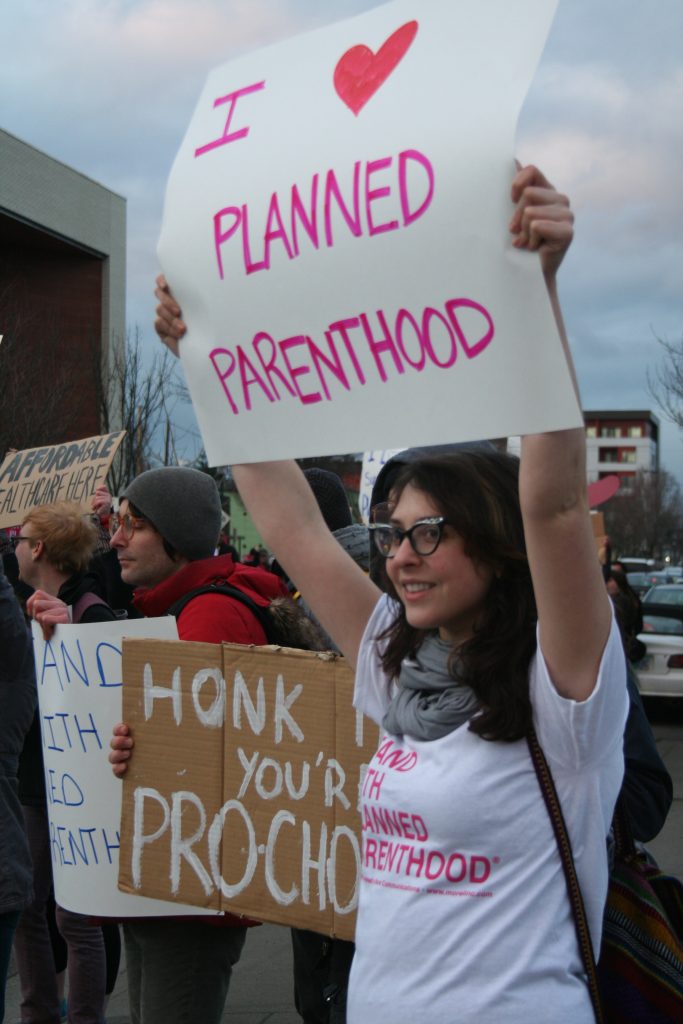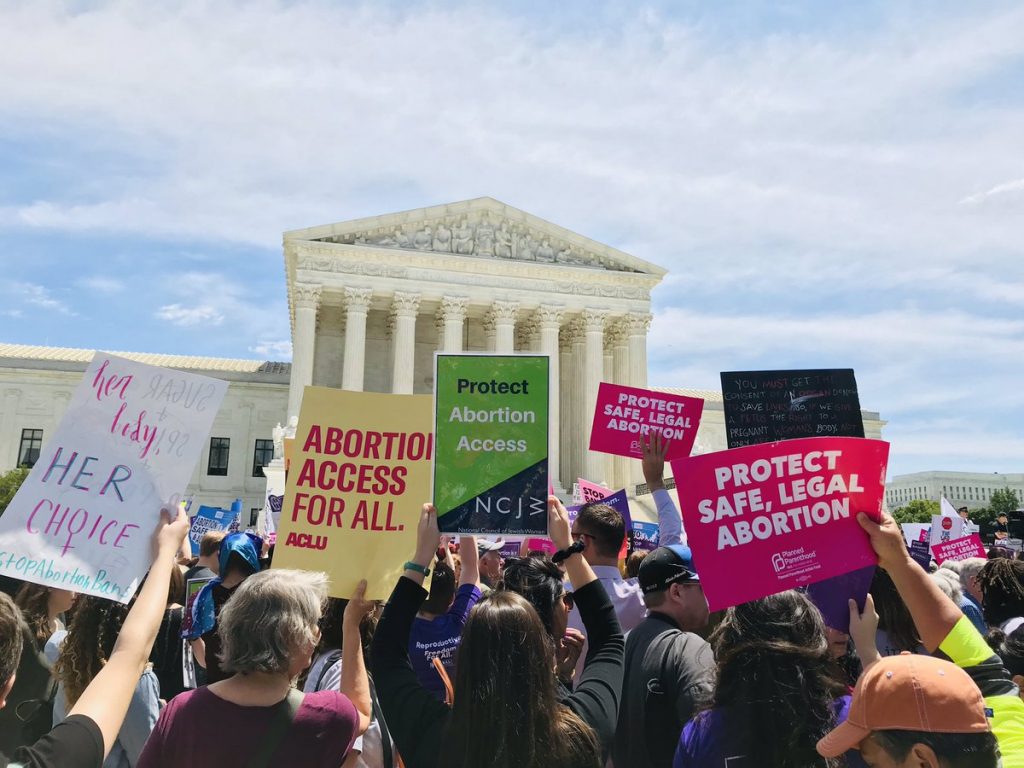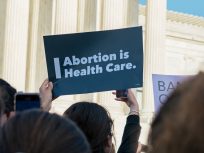Earlier this year, we produced a series of articles highlighting the most dangerous abortion laws to sweep through state legislation. While many have been blocked by courts, the anti-choice sentiment that promoted these bills remains. Below you will find links to our original articles and updates on the proposed legislation.
Alabama
House Bill 314: Human Life Protection Act
HB 134, after comparing abortion to the Holocaust, Soviet gulags, the Chinese “Great Leap Forward,” Knmer Rouge and the Rwandan genocide, sought to charge doctors who performed abortions with a Class A felony, carrying up to 99 years in prison.
The law was blocked in October by U.S. District Judge Myron H. Thompson, who issued a preliminary injuction, stating that the law clearly “defies the United States Constitution” and violates a Supreme Court precedent.
The law, which attempted to ban abortion outright, was set to go into effect November 15. Knowing that the law was likely unconstitutional, Alabama’s governor, Kay Ivey, signed it in the hopes of sparking reconsideration of Roe v. Wade.
The New York Times reported Randall Marshall, executive director of the ACLU of Alabama, stating that the state’s attempts to outlaw abortion by enacting “unconstitutional laws” cost taxpayers nearly $2.5 million already.

Georgia
House Bill 481: Living Infants Fairness and Equality (LIFE) Act
HB 481 attempts to codify fetal personhood, despite Roe v. Wade determining that the 14th Amendment’s use of the word ‘person’ does not include the unborn. The bill attempts to establish fetal vitality at the existence of audible cardiac activity, directly defying the ruling found in Roe. The bill was set to go into effect January 2020.
District Judge Steve C. Jones blocked the law, stating “Under no circumstances whatsoever may a state proghibit or ban abortions at sny point prior to viability.”
Judge Jones also brought up concerns about the codification of “fetal personhood,” stating that there is confusion about “whether and when clinicians could face criminal prosecution” for providing health services.
Louisiana
Senate Bill 184: Fetal Heartbeat Abortion Ban
SB 184, set to go into effect only if Mississippi abortion ban passes muster, seeks to outlaw abortion once a fetal heartbeat is detected. SB 184 has exceptions only to prevent the pregnant person’s deth or stop impairment to bodily function but does not include exceptions for rape or incest. Doctors who perform abortions could face up to two years in prison and lose their medical license.
House Bill 133
HB 133 was adjourned sine die, meaning that no future consideration date was set for this bill. The bill sought to change the definition of abortion to “the act of using or prescribing any instrument, medicine, drug or other substance, device or means with the intent to terminate the clinical diagnosable pregnancy of a woman with knowledge that the termination of those means will, with reasonable likelihood, cause the death of the unborn child.” The bill would further require medical abortions to be handled solely at Louisiana’s three licensed abortion clinics.
House Bill 425
HB 435 seeks to add anti-choice language to the Louisiana Constitution, declaring that abortion is not an inherent right. Voters will have the option to add the language to the Louisiana Constitution in November 2020.

Missouri
House Bill 126: Missouri Stands for the Unborn Act
HB 126 sought to criminalize abortion after the 8th week of pregnancy and charged those who perform an abortion with a Class B felony punishable by five to 15 years in prison.
A day before it was set to go into effect, U.S. District Judge Howard Sachs placed a temporary hold, stating that it would cause significant interference with Planned Parenthood’s service and the rights of its patients. The judge allowed the “reason ban” to stay in effect, which prohibits abortions on the basis of sex, race or a diagnosis of Down syndrom.
Other provisions that escaped the temporary ban include:
- An emergency clause which requires both parents of a minor to be notified should a minor seek an abortion;
- A required increase in medical malpractice coverage for physicians providing abortion services;
- Requirement that Missourians who are referred for abortion procedures out of state but comply with the same informed consent standards
- Increased tax credits for crisis pregnancy centers
The language banning abortion outright should Roe v. Wade be overturned remains in the bill.
Missouri appealed the ruling.
While fighting to outlaw abortion, the state is also working to shut down St. Louis’ Planned Parenthood an act which would render Missouri the only state in the country to have no abortion clinic.
Ohio
Senate Bill 23: Human Rights Protection Act
SB 23 was set to go into effect July 11, 2019. It sought to criminalize doctors who induce or perform abortions before determining if there is a fetal heartbeat with a fifth degree felony. The bill denied exceptions for rape or incest.
The ACLU filed a lawsuit May 15 requested that the effect date be delayed and the law deemed unconstitutional.
On July 3, a U.S. District Judge Michael Barett granted a preliminary injunction against Senate Bill 23, blocking Ohio’s abortion ban. Judge Barrett stated in his opinion that “SB 23 places an ‘undue burden’ on a [person’s] right to choose a pre-viability abortion, and … plaintiffs are certain to succeed on the merits of their claim.” Noting that the cut off for a legal abortion under this bill was just two weeks after a purported missed period, Judge Barrett stated the near impossibility of knowing one was pregnant in that time. “A [person] with irregular periods likely will be denied the opportunity to seek an abortion altogether because [they] will not realize” they’re pregnant until after the 6-week cutoff.
House Bill 182: Prohibit Offering Insurance for Abortion Services
There is no update on HB 182, which was introduced April 3, 2019.
On Thursday, November 14th, reports of Ohio’s newest abortion ban, which seeks to codify fetal personhood and criminalize doctors who perform abortions with murder, was proposed.
Law@theMargins is proud to sponsor Reproductive Justice Day on November 23, 2019 in New York City. Details can be found on our Facebook page. Link: https://www.facebook.com/events/3136463233094320/




